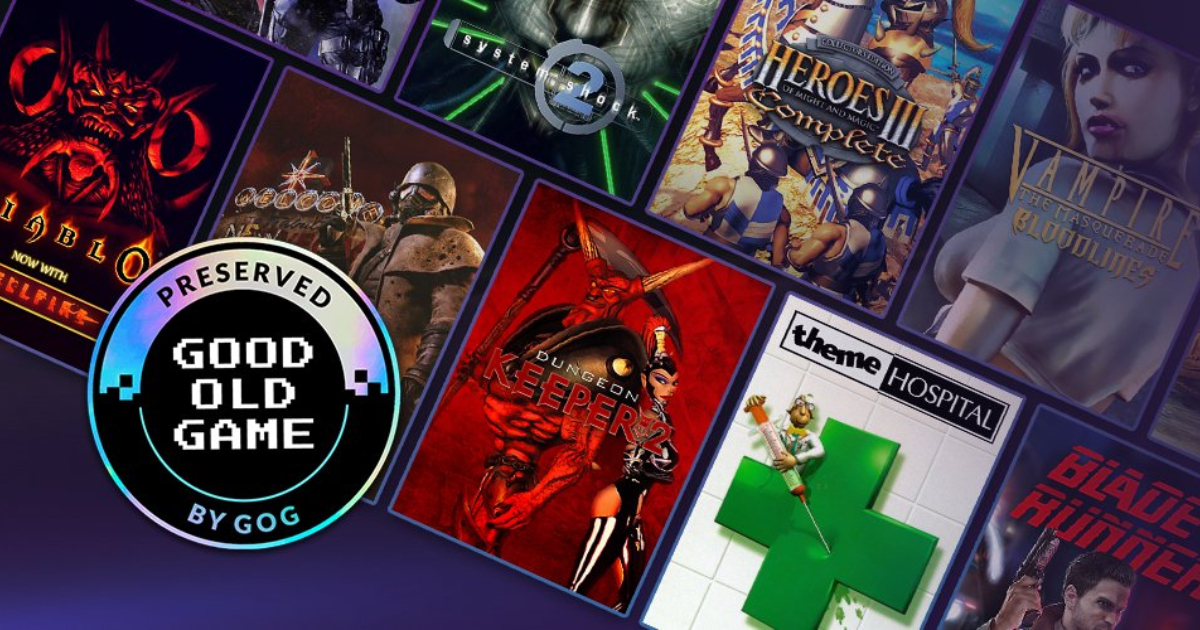CD Projekt has launched a new initiative as part of its GOG store. Celebrating the platform’s 16th anniversary, the company is presenting a program with a number of old games updated and improved by the team.

What is the GOG Preservation Program?
As CD Projekt explained in a blog post, games that are part of the GOG Preservation Program are stamped with a special quality status that ensures they can be played on modern systems.
For a game to qualify for the program, the GOG team must run it through many quality tests. The company grants a product the Good Old Game status only once it matches its standards.
The GOG Preservation Program currently includes 100 classic titles such as Diablo, Fallout, Jagged Alliance, Dungeon Keeper 2, Star Control, Icewind Dale, Blade Runner, Alpha Protocol, Arcanum, Ultima 4, and more.
They have already been available on GOG.com, but the company is now re-releasing them with updated and quality-tested builds, in addition to many fixes.
GOG improved each game using its own resources, updating them to support modern resolutions and fixing game-breaking bugs. For example, here is what the team made with the Resident Evil 1-3 bundle: included all available localizations, improved timing of the cutscenes and savegame manager editors, as well as added cloud saves support and other QoL features. Users can see a log of changes for every project on the list.
“There is a long backlog of classic games available on GOG that may already qualify for the program, but our team has not been able to confirm that yet,” the team said. “We aim to support as many games as possible, but it’s not always entirely up to us.”
CD Projekt plans to not only preserve and restore classic games, but also maintain them using its internal resources. The company wants to grant hundreds of titles with the Good Old Game stamp by the end of 2025.
GOG’s roots and its commitment to game preservation
CD Projekt originally launched GOG (then known as Good Old Games) in 2008 to focus on digital distribution of DRM-free versions of classic titles. The company updated those products through reverse engineering or using emulation software to make them work on modern systems, something other digital storefronts couldn’t offer.
Digital versions of some classic titles sold on GOG at the time weren’t available on other stores, making it a platform for users who wanted to officially purchase retro games and run them without additional mods or emulators.
Over time, CD Projekt expanded the GOG catalog with its own releases and new games from third-party studios. The original idea of the platform has become blurred, shifting the focus away from classic titles for many (including new) users.
The launch of the Preservation Program can be seen as an attempt by GOG to re-emphasize its original roots and the importance of preserving retro games, especially those officially out-of-print.
“The Video Game History Foundation has recently shared that 87% of games created before 2010 are inaccessible today,” the GOG team said in a statement. “This is something that we cannot accept, and with the help of the gaming community, we are set on getting that number down to zero.”
Through the Preservation Program, GOG wants to “make games live forever” and “bring the utmost attention to what the center of our work has been for the last 16 years: video game preservation.”
